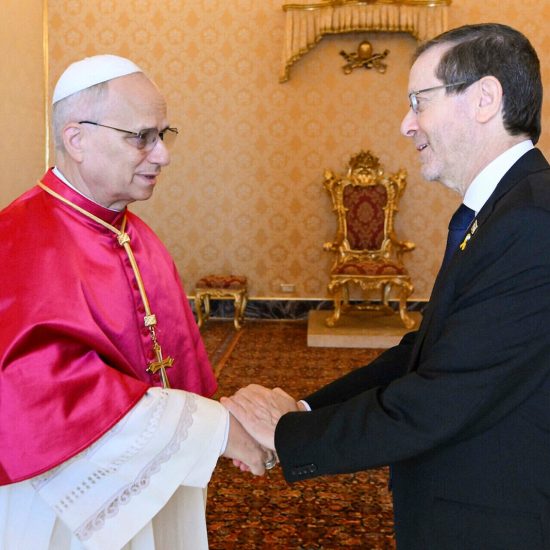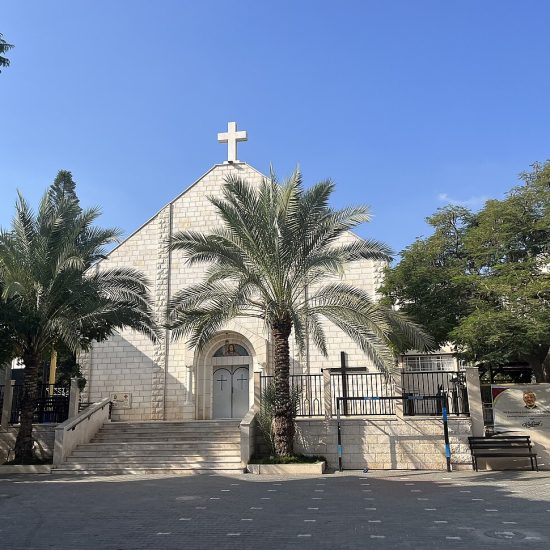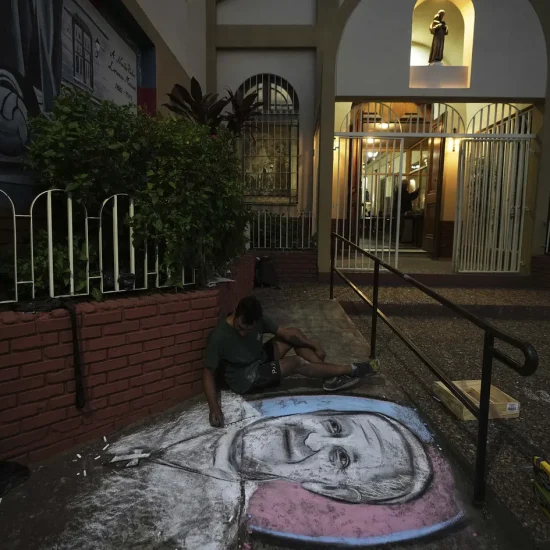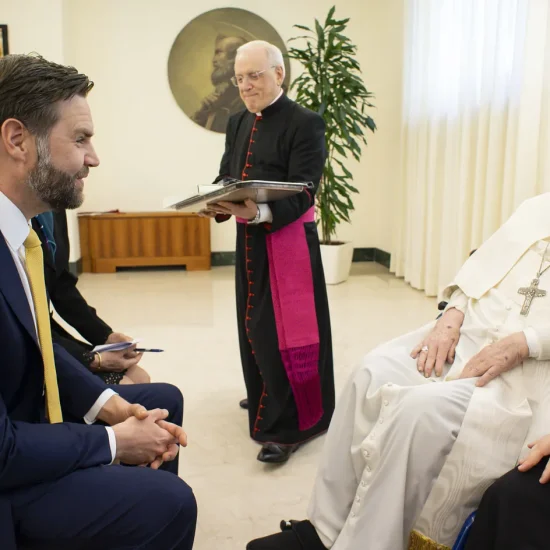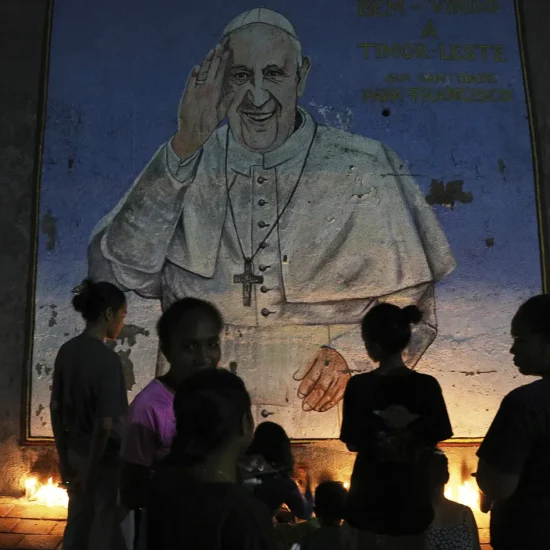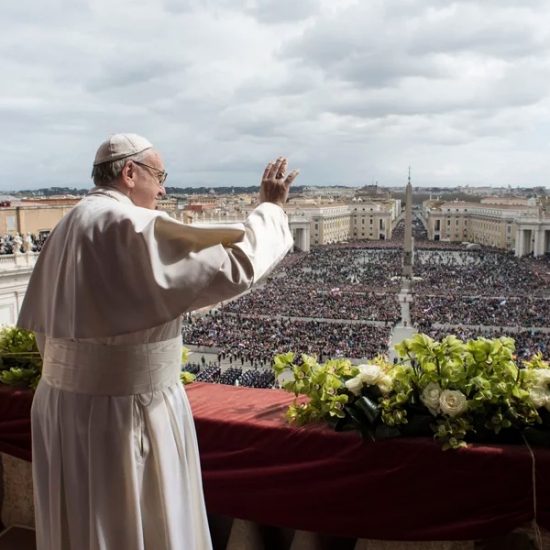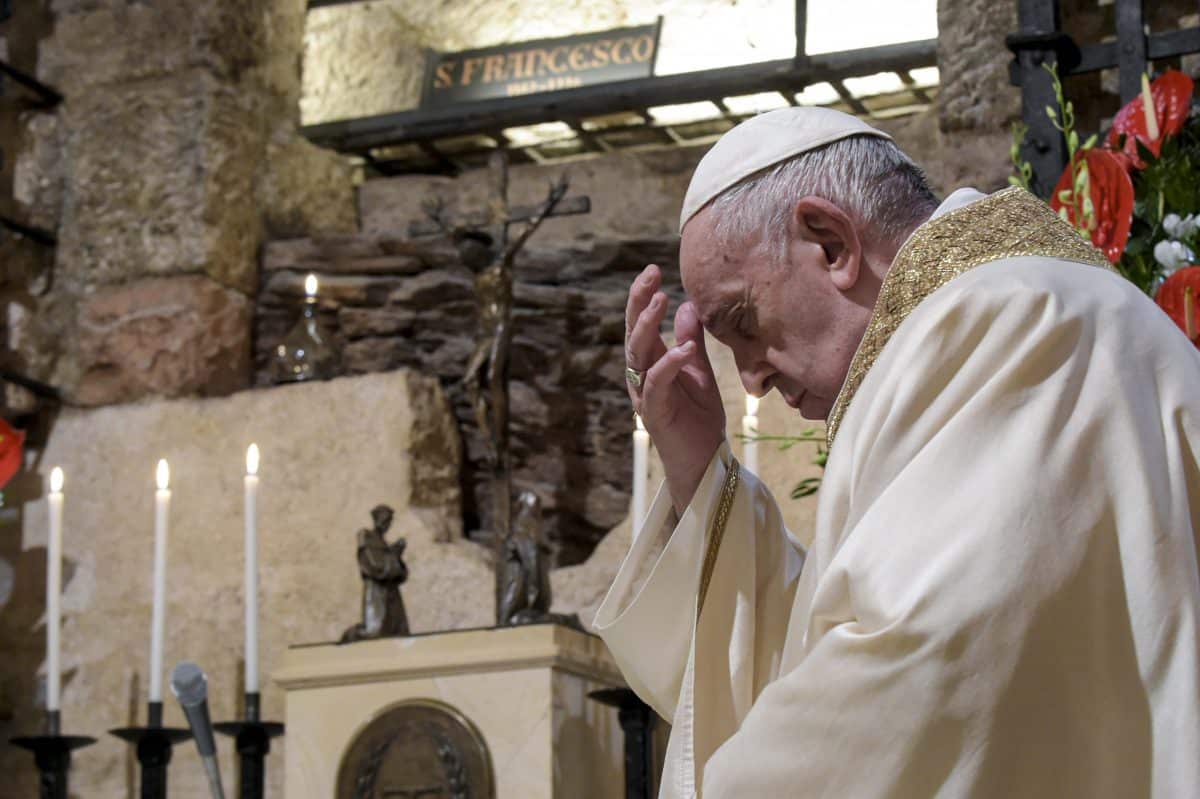
ROME (AP) — Pope Francis says the coronavirus pandemic has proven that the “magic theories” of market capitalism have failed and that the world needs a new type of politics that promotes dialogue and solidarity and rejects war at all costs.
Francis on Sunday (Oct. 4) laid out his vision for a post-COVID world by uniting the core elements of his social teachings into a new encyclical aimed at inspiring a revived sense of the human family. Fratelli Tutti (Brothers All) was released on the feast day of his namesake, the peace-loving St. Francis of Assisi.
The document draws its inspiration from the teachings of St. Francis and the pope’s previous preaching on the injustices of the global economy and its destruction of the planet and pairs them with his call for greater human solidarity to confront the “dark clouds over a closed world.” In the encyclical, Francis rejected even the Catholic Church’s own doctrine justifying war as a means of legitimate defense, saying it had been too broadly applied over the centuries and was no longer viable.
“It is very difficult nowadays to invoke the rational criteria elaborated in earlier centuries to speak of the possibility of a ‘just war,’” Francis wrote in the most controversial new element of the encyclical.
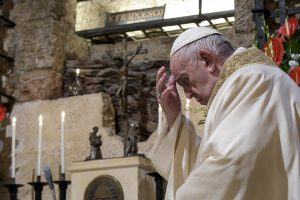
Pope Francis celebrates Mass in the crypt of the Basilica of St. Francis, in Assisi, Italy, on Oct. 3, 2020. (Vatican Media via AP)
Francis had started writing the encyclical, the third of his pontificate, before the coronavirus struck and its bleak diagnosis of a human family falling apart goes far beyond the problems posed by the outbreak. He said the pandemic, however, had confirmed his belief that current political and economic institutions must be reformed to address the legitimate needs of the people most harmed by the coronavirus.
“Aside from the differing ways that various countries responded to the crisis, their inability to work together became quite evident,” Francis wrote. “Anyone who thinks that the only lesson to be learned was the need to improve what we were already doing, or to refine existing systems and regulations, is denying reality.”
He cited the grave loss of millions of jobs as a result of the virus as evidence of the need for politicians to listen to popular movements, unions and marginalized groups and to craft more just social and economic policies.
“The fragility of world systems in the face of the pandemic has demonstrated that not everything can be resolved by market freedom,” he wrote. “It is imperative to have a proactive economic policy directed at ‘promoting an economy that favours productive diversity and business creativity’ and makes it possible for jobs to be created, and not cut.”
He denounced populist politics that seek to demonize and isolate, and called for a “culture of encounter” that promotes dialogue, solidarity, and a sincere effort at working for the common good.
As an outgrowth of that, Francis rejected the concept of an absolute right to property for individuals, stressing instead the “social purpose” and common good that must come from sharing the Earth’s resources. He repeated his criticism of the “perverse” global economic system, which he said consistently keeps the poor on the margins while enriching the few — an argument he made most fully in his 2015 landmark environmental encyclical Laudato Sii (Praised Be).
Francis also rejected “trickle-down” economic theoryas he did in the first major mission statement of his papacy, the 2013 Evangelii Gaudium, (The Joy of the Gospel), saying it simply doesn’t achieve what it claims.
“Neo-liberalism simply reproduces itself by resorting to magic theories of ‘spillover’ or ‘trickle’ — without using the name — as the only solution to societal problems,” he wrote. “There is little appreciation of the fact that the alleged ‘spillover’ does not resolve the inequality that gives rise to new forms of violence threatening the fabric of society.”
Francis’s English-language biographer, Austen Ivereigh, said with its two key predecessors, the new encyclical amounts to the final part of a triptych of papal teachings and may well be the last of the pontificate.
“There is little doubt that these three documents … will be considered the teaching backbone of the Francis era,” Ivereigh wrote in Commonweal magazine.
Francis made clear the text had wide circulation, printing the encyclical in the Vatican newspaper L’Osservatore Romano and distributing it free in St. Peter’s Square on Sunday to mark the resumption of printed editions following a hiatus during the COVID-19 lockdown.
Much of the new encyclical repeats Francis’s well-known preaching about the need to welcome and value migrants and his rejection of the nationalistic, isolationist policies of many of today’s political leaders.
He dedicated an entire chapter to the parable of the Good Samaritan, saying its lesson of charity, kindness and looking out for strangers was “the basic decision we need to make in order to rebuild our wounded world.”
“That a theme so ancient is spoken with such urgency now is because Pope Francis fears a detachment from the view that we are all really responsible for all, all related to all, all entitled to a just share of what has been given for the good of all,” said Anna Rowlands, professor of Catholic social thought at Britain’s University of Durham, who was on hand to present the encyclical Sunday at the Vatican.
Francis enshrined in the encyclical his previous rejection of both the nuclear arms race and the death penalty, which he said was “inadmissible” in all cases.
Francis’s call for greater “human fraternity,” particularly to promote peace, is derived from his 2019 joint appeal with the grand imam of Egypt’s Al-Azhar, the revered 1,000-year-old seat of Sunni Islam. Their Human Fraternity document established the relationship between Catholics and Muslims as brothers, with a common mission to promote peace. The fact the he has now integrated that Catholic-Muslim document into an encyclical is significant, given Francis’s conservative critics had already blasted the Human Fraternity document as heretical, given it stated that God had willed the “pluralism and diversity of religions.”
Vatican encyclicals are the most authoritative form of papal teaching and they traditionally take their titles from the first two words of the document. In this case, Fratelli Tutti is a quote from the “Admonitions,” the guidelines penned by St. Francis in the 13th century.
The title of the encyclical had sparked controversy in the English-speaking world, with critics noting that a straight translation of the word “fratelli” (brothers) excludes women. The Vatican has insisted that the plural form of the word “fratelli” is gender-inclusive.
Francis’s decision to sign the document in Assisi, where he traveled on Saturday, and release it on the saint’s feast day is yet further evidence of the outsized influence St. Francis has had on the papacy of the Jesuit pope. Francis is the first pope to name himself after the mendicant friar, who renounced a wealthy, dissolute lifestyle to embrace a life of poverty and service to the poor.

